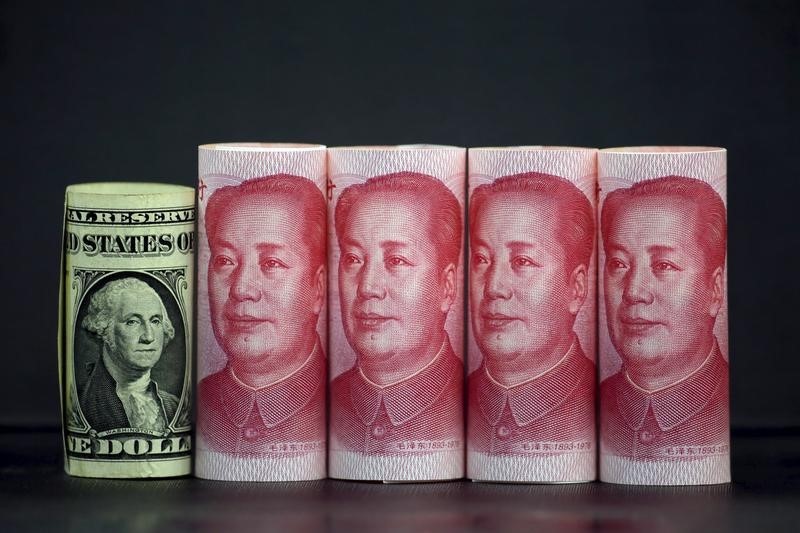By Michelle Chen
HONG KONG (Reuters) - More China trade is expected to be settled in yuan this year despite concerns about its cooling economy and fears that the currency could weaken further.
Heavy interventions by the central bank in recent months to steady the currency and deter speculators have raised questions about China's foreign exchange policy and threatened to slow Beijing's steady push to internationalise the "redback".
But analysts say that while many companies may now be more cautious about using the yuan, the number of transactions settled in the currency is likely to grow.
One key factor is the attractiveness of arbitrage activities that allow firms to benefit from differences in interest rates and foreign exchange rates in mainland China and in Hong Kong.
The yuan's overseas expansion has slowed since last year, with yuan deposits shrinking and the issuance of "dim sum" yuan bonds falling in Hong Kong as demand from foreigners to hold yuan-denominated assets has waned.
However, yuan cross-border trade settlement still grew in 2015, rising to 26 percent of China's total trade from 22 percent a year earlier, according to Reuters calculations.
Some market players expect that could climb to over 30 percent by the end of this year despite worries of another flare-up in volatility.
"There are two arbitrage opportunities here. One is interest rate arbitrage, which will be lasting for the whole of 2016," said Iris Pang, a senior Greater China economist at Natixis.
Foreign exchange rate differentials may also come into play if the gap between onshore and offshore yuan values widens again, Pang said.
Companies benefit from these differences in various ways, either through genuine trading activity or fake trade invoices.
A company can convert U.S. dollars to yuan offshore where the dollar is stronger, and then transmit the funds to a mainland-related firm via a trade settlement. That firm converts the yuan back to dollars at a better rate, booking a profit.
The spread between onshore yuan and its offshore counterpart surged to 1,400 pips in January before narrowing to around 50 pips on Tuesday.
For companies that make use of different interest rates in the two markets, they can get over 4 percent from Hong Kong banks for depositing yuan for one year and then use the deposits as collateral for letters of credit (LCs).
The LCs can be sent to related companies in the mainland, which are granted loans at a cost of around 3 percent from onshore banks based on those LCs, according to Natixis.
"I don't see strong momentum of yuan trade settlement growth for now as many companies have been taking a wait-and-see approach on whether to use the yuan due to high volatility," said Ngan Kim Man, deputy head of treasury at China Everbright Bank's Hong Kong branch.
But he added yuan trade settlement volumes may still rise this year if arbitrage activities or fake invoicing continued.

Discrepancies between China and Hong Kong trade data in December and January raised concerns that some firms were using false transactions to disguise fund movements at a time when Beijing is trying to curb capital outflows.